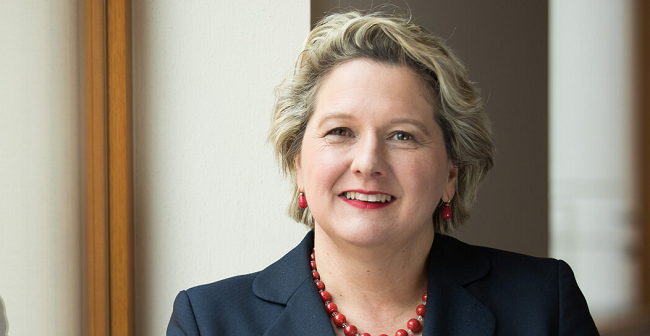Climate destabilisation increases risks to peace and security – to address these risks, scientists and policy-makers are teaming up to find solutions. The Berlin Climate and Security Conference (BCSC) is the global meeting place for leaders from governments, international organisations, the scientific community, the private sector and civil society to explore how climate change is impacting peace and security – and what action the international community can take to tackle climate-fragility risks.

This year the high-level event, which features statements from over 14 foreign ministers, heads of state, and UN chiefs, explores the steps necessary to ensure the world builds a climate- and conflict-sensitive post-Covid world. It is organised by the German Federal Foreign Office, in partnership with adelphi and Potsdam Institute for Climate Impact Research (PIK).
“For most of us, exponential growth was an abstract concept – until the COVID-19 pandemic hit us,” says German Foreign Minister, Heiko Maas.
“In the past weeks, we all learned about its potentially catastrophic effects. The pattern is the same for climate change, even though it happens in slow motion. And the consequences are equally severe – for human lives and as a source of future conflicts.
“Foreign and security policy must reflect this and finally embrace a new concept of security. Today we know: Not a single shot must be fired to throw entire regions into turmoil. A long drought can have an equally destructive effect,” Maas added.
The BCSC 2020 takes place in two parts. Part I, June 23 to 24, 2020, examines the growing risks that the impacts of climate change present for international peace and security, with a view to finding clear steps forward to strengthen responses to climate-related security risks. It features a high-level political segment with German Foreign Minister Heiko Maas. BCSC 2020 Part II, from September 7 to October 2, 2020, will reflect on how more comprehensive risk assessments could support a forward-looking and preventative foreign and security policy.
“Security and prosperity in the 21st century depend on how we manage global commons”
“Transgressing planetary boundaries will lead to situations where clashes over resources become more frequent. We see these effects already, for instance in vulnerable regions in the Sahel where droughts contribute to food crises, which in turn can spark unrest,” says Earth system scientist Johan Rockström who, together with the economist Ottmar Edenhofer, leads the Potsdam Institute for Climate Impact Research.
Edenhofer adds: “Security and prosperity in the 21st century will to a large extent depend on how we manage global commons, including climate stability. Like mapmakers, scientists try to identify several pathways to reach targets set by the international community, thereby enabling decision-makers to make informed choices about which course to steer.”
Alexander Carius, Managing Director of adelphi, emphasises that “we can only build back a safe post-Covid world if we take account of climate change. But what is the use if there is no peace? We do not want to return to business as usual. We need a thorough understanding of the linked risks we face, to ensure risk-informed policies today lead us towards a healthier, climate-safe and peaceful tomorrow.”
Developing a Global Climate Security Risk and Foresight Assessment
The overall goal of BCSC 2020 is to reveal how more comprehensive risk assessments can be translated into forward-looking, preventative foreign policy. In fact, we still lack an authoritative global-level risk assessment that provides a holistic analysis of climate related security risks and clear messages to policy makers.
To address this gap, the German Federal Foreign Office has commissioned a consortium of leading science and policy research institutes to develop a Global Climate Security Risk and Foresight Assessment.
The initiative, jointly led by adelphi and the Potsdam Institute for Climate Impact Research (PIK), will bring together climate scientists, social scientists and conflict experts to identify context-specific dimensions of risk and resilience with the aim of ensuring timely, relevant and effective responses to climate-related security challenges.
This year’s BCSC will also see the release of a new PIK-adelphi report that lays the groundwork for the risk assessment. It synthesises and contextualises the existing scientific evidence to provide policymakers with 10 insights on climate and peace.
These steps by Germany, which has championed action on climate and security under its UN Security Council presidency, show continued commitment to the issue, explicitly implementing the recommendations of the 2019 Berlin Call for Action.
